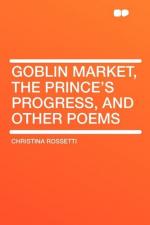
|
| Name: _________________________ | Period: ___________________ |
This test consists of 5 short answer questions, 10 short essay questions, and 1 (of 3) essay topics.
Short Answer Questions
1. When was the deceased of An End born?
2. Upon what are the eyes of the poem's speaker and unspecified companion fixed in An End?
3. In the first line of Echo, the speaker demands that her auditor come to her in the silence of the what?
4. Where does the great lord first see cousin Kate in the poem of the same name?
5. In the final stanza of Echo, the speaker's life is described as being cold in what?
Short Essay Questions
1. How does Maude Clare, in the poem of the same name confront the newly-wedded couple?
2. Why does the speaker attempt to cast off her expectations in A Pause of Thought?
3. For what is the speaker of Echo in longing?
4. What sort of descriptions does the poem's speaker give to her mood and what characterizes these descriptions in A Birthday?
5. What is a possible interpretation of the last line of the first stanza in the first poem entitled Song, "Grown old before my time"?
6. Why is the poem's speaker permanently separated from her once lover in An Apple Gathering?
7. What characterizes the poem's speaker's commands to the rose and the bird in the first two stanzas of A Summer Wish?
8. Why, of all the women in A Triad, do none achieve life?
9. How does the "she" change from day to night in The World?
10. Why would the speaker not plant summer flowers and wait, as described in the first stanza of Another Spring?
Essay Topics
Write an essay for ONE of the following topics:
Essay Topic 1
Perhaps the dominant theme in all of the poems in the collection is the temporality of earthly happiness. Compose an analytical essay which, in perusing the entirety of the collection, designates a comprehensive portrayal of earthly happiness. In what poems is there a commentary upon happiness? How is happiness portrayed in each individual poem? What is demonstrated by the poems individually? What is demonstrated by the poems overall? Against what is the temporality of earthly happiness contrasted? What do these presentations reveal about human nature?
Essay Topic 2
Many of the poems in this collection are in the traditional Italian sonnet form. This includes A Triad, Remember, After Death, The One Certainty, and The World. Using either a few, or all, of these sonnets, compose an analytical essay which demonstrates how the Italian sonnet form conveys its significance through exposition in the octave and explication or resolution in the sestet. How do the two parts interact with one another? What does the commentary or resolution in the sestet achieve? What opportunities of conveying significance does the form of the sonnet allow? What is the significance of some of the sonnets in the collection?
Essay Topic 3
In Goblin Market, one theme which emerges from the overall story is the strength of and relation between love and sacrifice. In a well-developed essay analyze the portrayal of love and love's manifestation by sacrifice. How is love portrayed in the poem? Why is sacrifice necessary to love? Against what do love and sacrifice contrast? What sort of actions accompany true love and genuine sacrifice? The etymological root of sacrifice means to "make sacred"; how is this portrayed and demonstrated in the characters and actions of Goblin Market? What does the poem demonstrate about the relationships between love, sacrifice, and human nature?
|
This section contains 878 words (approx. 3 pages at 300 words per page) |

|




